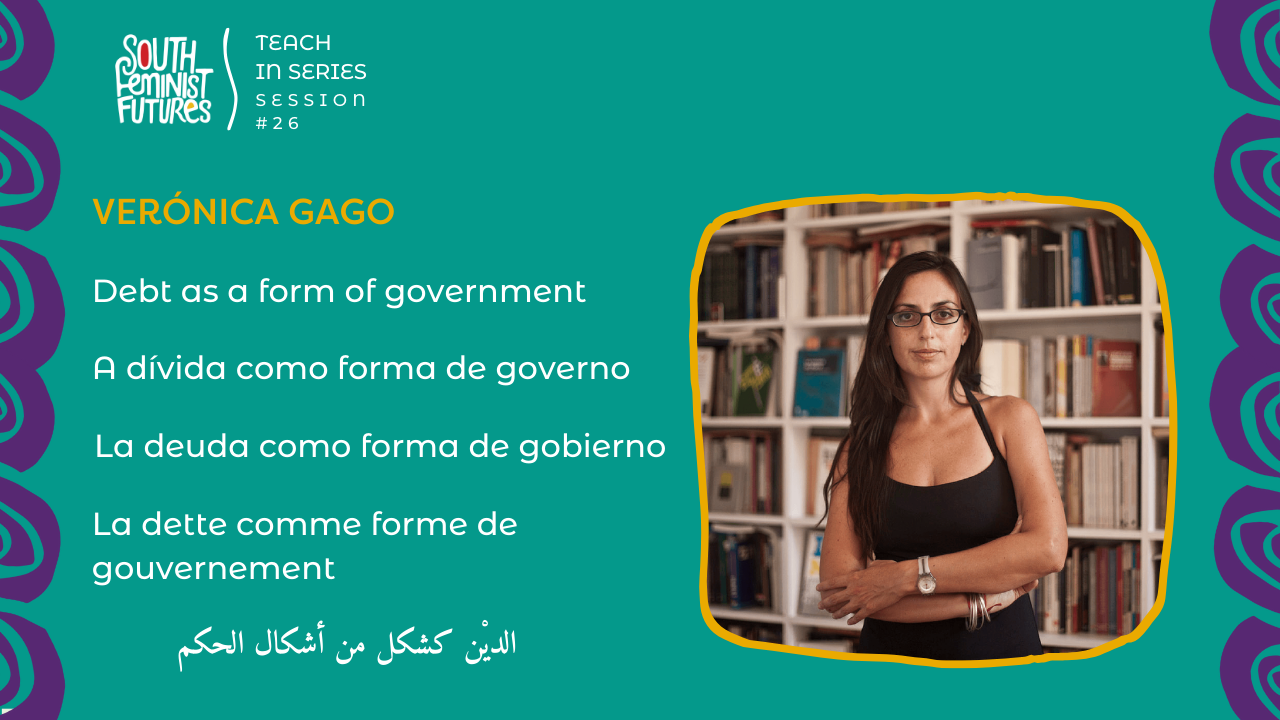The 26th session of our Political Economy Teach-in Series, “Debt as a form of government” with Verónica Gago, was held on August 21st, 2025.
Verónica Gago is a researcher at CONICET and a professor at the National University of San Martín (UNSAM) and the University of Buenos Aires (UBA). Her work brings together political theory, feminist studies, popular economy, and social movements in Latin America. She coordinates research spaces focused on neoliberalism, popular resistance, and feminist struggles from a situated and activist perspective. She studies the dynamics of precarisation of both waged and unwaged labor through an intersectional approach that considers class, race, and gender. She has devoted her work to analysing popular economies in Argentina, comparing them with other regional experiences. She also researches the intersections between economic crises and the political dynamics of subaltern sectors, as well as the processes of the financialisation of everyday life from a feminist perspective.
During this session, we reflected on how a feminist reading of debt allows us to understand the function of debt as a mechanism of governance. It operates both at the level of countries in the Global South and within households. It is a key modality for understanding financial capitalism in its patriarchal and colonial dimensions. Debt is a form of exploitation of labour, bodies, and territories, which rapidly intertwines with various extractivist projects — to the point where we can understand ourselves as facing a form of “financial extractivism.”
Our South Feminist Political Economy Teach-in Series aims to strengthen intergenerational dialogue and build a cross-regional feminist constituency. The series covers various topics to interrogate and strengthen understanding of issues shaping conditions in the Global South.
We have curated a special reading list of resources on the topic of this session, available on our South Feminist Knowledge Hub. It is designed to deepen your understanding of the themes and inspire meaningful discussion – featuring powerful contributions from authors and thinkers across the Global South.
